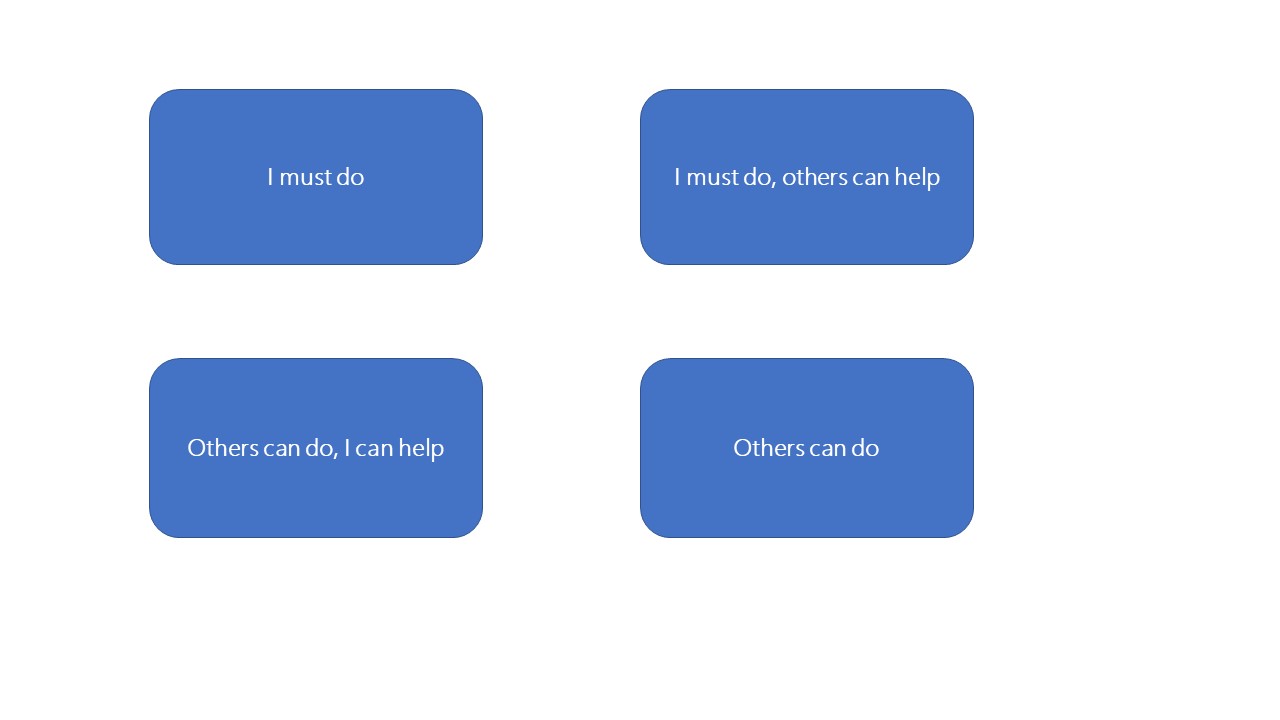Delegation is a necessary and vital tool for Managers if you want your team to be productive. But letting go and allowing your team members to take on tasks and projects can be scary.
Common Challenges
Do any of the following statements sound familiar to you?
-
- It takes too long to explain
- It’s easier to do it myself
- They’re not able to do it the way I want it done
- It is too risky
If yes, then know you are not alone. But also know that if you keep using these excuses, you won’t save time, develop others, or reduce your stress levels. More importantly productivity will fall and so will your reputation as a Manager.
Underlying many of these excuses is that the Manager doesn’t feel they have the skills to delegate effectively and fears failure. However, when you successfully delegate, you give and receive far more value than you may realise.
So why should I delegate?
There are many benefits to effective delegation, not least reduction of your own stress levels, but today I want to focus on the direct impact on productivity.
Too often Managers are reluctant to delegate responsibility for decision making as they feel it takes away their authority. However, this creates a decision making bottleneck that can be costly. When staff are empowered to complete a task and make decisions, there’s less waiting around for the manager to sign off. Things get done! And when things get done, the sense of achievement is increased, which improves motivation and job satisfaction.
Managers are also guilty of not delegating work of high return or value. By taking the time to coach staff and enabling them to take on these responsibilities gives them the opportunity to challenge themselves and loyalty and productivity improves as a result. Or at least it doesn’t decrease.
Finally, by empowering your team, the work will still be conducted in your absence without unnecessary delays.
What should I delegate?
Instead of thinking that you need to do everything, take a look at the tasks and work on your desk and place each into the appropriate box below.

This box is for work that only you have the authority to do, work with short deadlines and work that only you have the skills and knowledge to do.
I must do, others can help
Remember, helping is not delegating. This is an opportunity to coach someone in part of a task or project in preparation for them taking responsibility at a later date.
Others can do, I can help
this is work you will delegate full responsibility for to someone else. You will coach and help them, but they will be responsible from now on
Others can do – Delegation
this is work you are confident to delegate full responsibility for without the need to spend much time coaching.
This technique not only helps you to prioritise your own work, it also ensures that you are not always delegating work to the same people you feel you are able to rely on to do a good job immediately. It helps you to focus on where you need to provide coaching or assistance and informs your team development plan.
Final Thoughts
remember, delegation is not about dumping the work you don’t like onto others, it is about creating a more skilled and versatile team. Employees who feel respected, trusted, and valued are more productive and more efficient.



